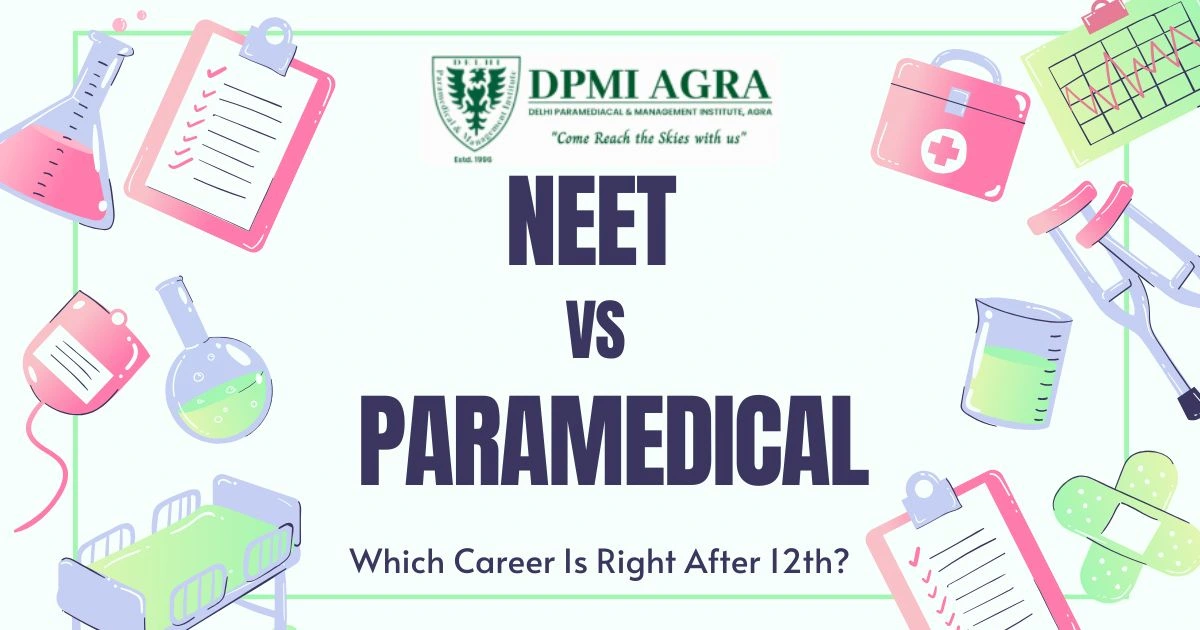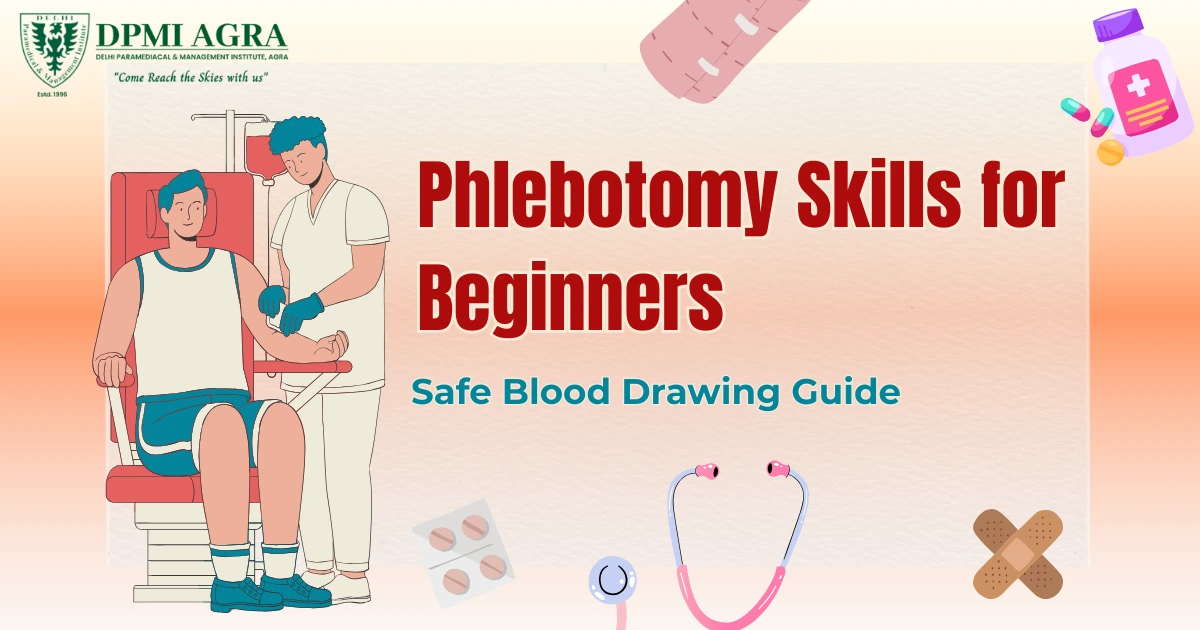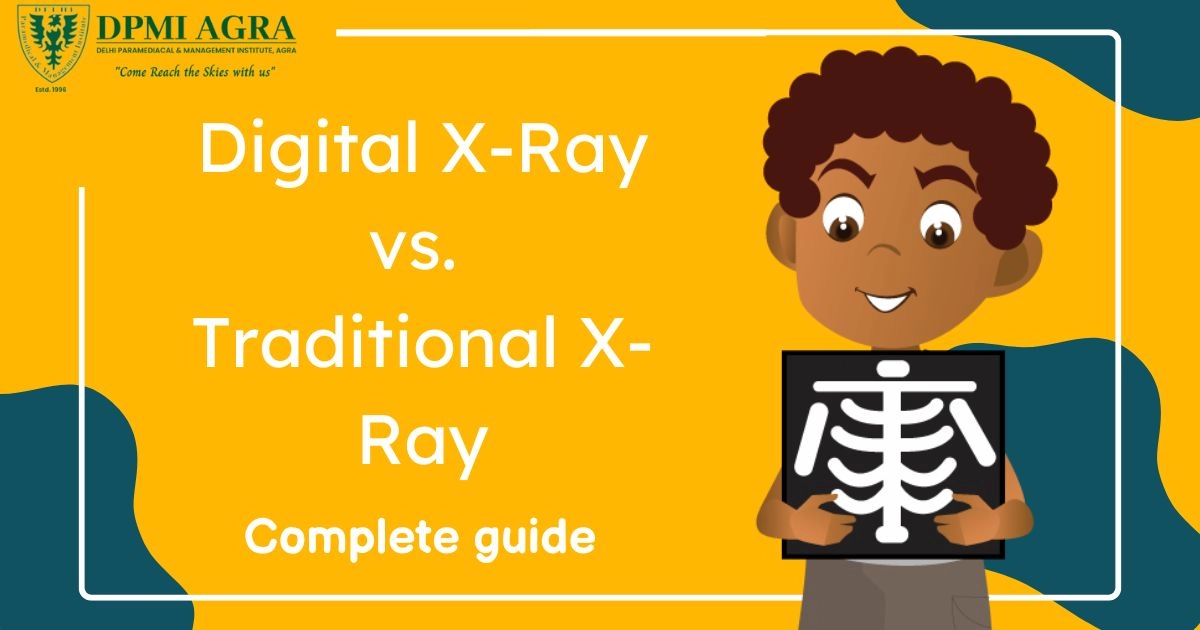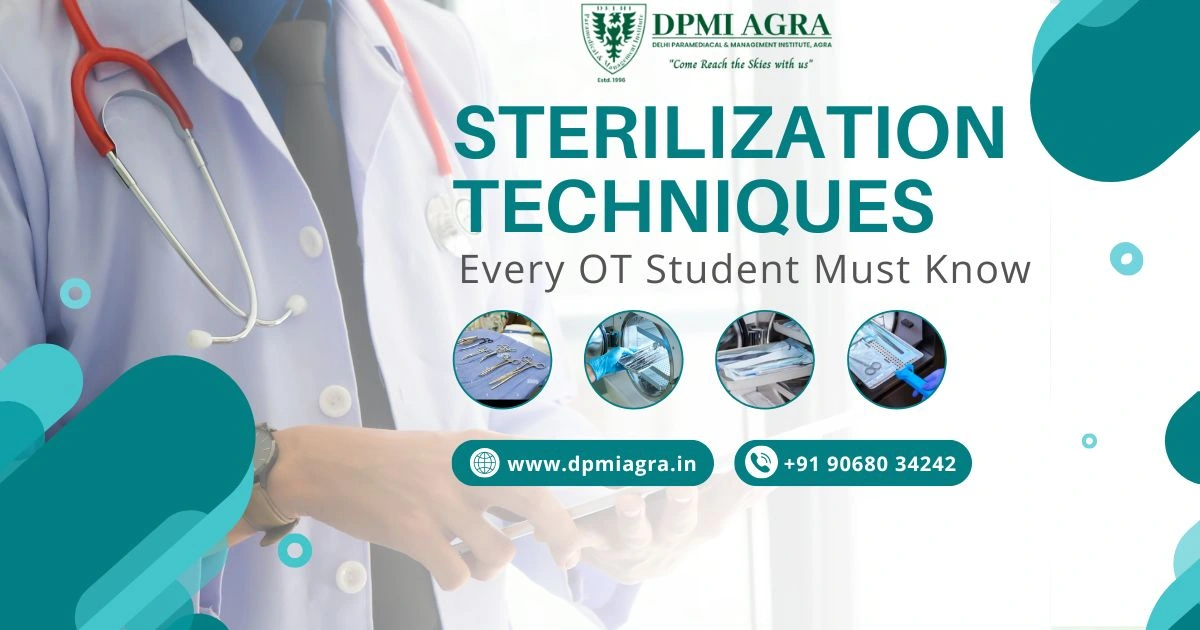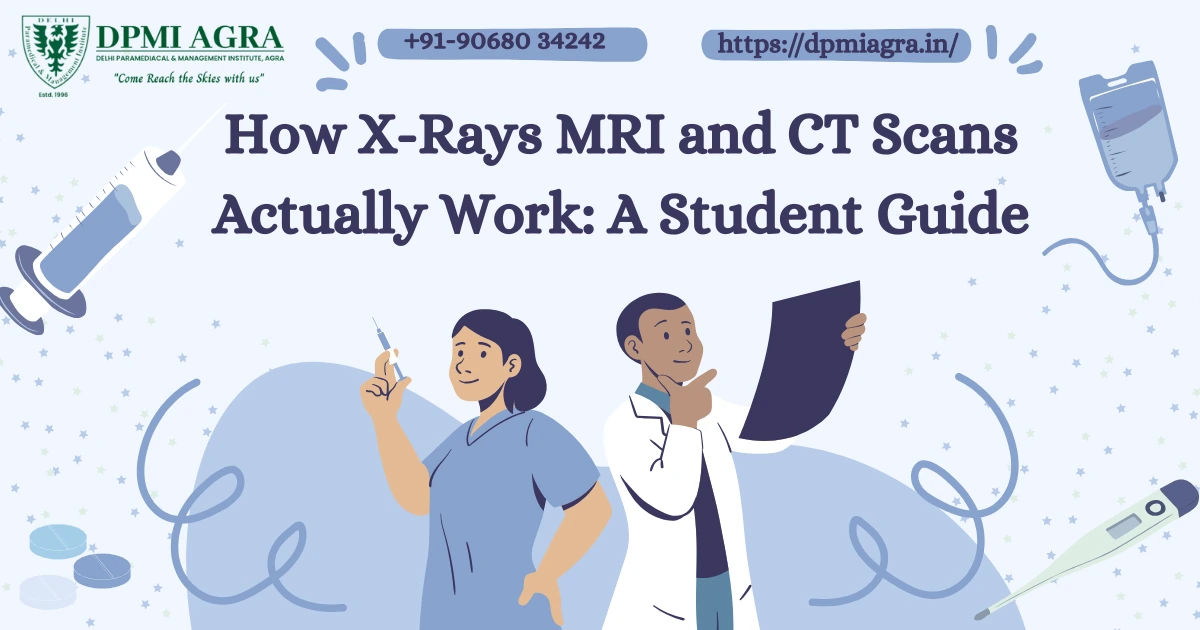Patient Communication Tips for Paramedical Staff
Effective communication is not just a soft skill in healthcare—it’s a lifesaving skill. For paramedical professionals, who often serve as the first and most frequent point of contact for patients, clear and compassionate interaction can dramatically improve patient outcomes, safety, and satisfaction. At DPMI Agra, paramedical training emphasizes not only technical expertise but also the human side of healthcare.
This pillar guide covers Communication Tips for Paramedical Staff with practical strategies, real-world examples, and updated healthcare trends for 2026. Whether you’re a student, intern, or working professional, this guide will help you build trust, reduce errors, and enhance patient care.
Introduction to Patient Communication in Paramedical Care
Patient communication forms the backbone of quality healthcare. Paramedical staff—including lab technicians, radiographers, dialysis technicians, and emergency responders—interact with patients at vulnerable moments. According to a 2025 WHO report, over 70% of medical errors are linked to communication failures, not lack of clinical skill.
At institutions like DPMI Agra, students are trained to combine empathy with accuracy. These Communication Tips for Paramedical Staff are designed to help professionals explain procedures clearly, reduce patient anxiety, and ensure cooperation. In today’s patient-centered healthcare model, communication is no longer optional—it’s essential.
Why Communication Skills Matter More Than Ever in 2026
Healthcare is evolving rapidly. Patients today are more informed, more vocal, and more diverse. A 2026 Indian Healthcare Survey revealed:
- 68% of patients judge healthcare quality by staff communication
- 55% are more likely to follow treatment plans when explanations are clear
- 42% file complaints due to poor staff behavior, not treatment failure
For paramedical professionals, mastering Communication Tips for Paramedical Staff improves:
- Patient trust and compliance
- Workplace teamwork
- Career growth opportunities
This is why paramedical programs at DPMI Agra integrate communication modules alongside clinical training.
Core Principles of Effective Patient Communication
Before diving into techniques, let’s understand the foundation. Effective communication in healthcare rests on four pillars:
| Principle | Description | Impact on Patient |
| Clarity | Simple, jargon-free language | Reduces confusion |
| Empathy | Understanding patient emotions | Builds trust |
| Accuracy | Correct and complete information | Prevents errors |
| Respect | Polite tone and behavior | Enhances comfort |
These principles guide all Communication Tips for Paramedical Staff, regardless of department or role.
Verbal Communication Tips for Paramedical Staff
Verbal interaction is the most direct form of patient communication. The way you speak can calm fears or escalate stress.
Best Practices:
- Use short sentences and common words
- Explain procedures step by step
- Avoid medical jargon unless explained
- Ask open-ended questions
Example:
Instead of saying, “We’ll collect a venous sample for hematology,” say,
“I will take a small blood sample from your arm for testing.”
At DPMI Agra, students practice role-playing exercises to master these Communication Tips for Paramedical Staff.
Non-Verbal Communication and Body Language
Your body often speaks louder than words. Studies show 55% of communication is non-verbal.
| Non-Verbal Cue | Positive Practice | Negative Impact if Ignored |
| Eye contact | Shows attention | Appears disinterested |
| Posture | Open and relaxed | Seems aggressive |
| Facial expression | Calm and friendly | Increases anxiety |
Smiling, nodding, and maintaining appropriate distance are simple yet powerful Communication Tips for Paramedical Staff.
Active Listening Techniques in Clinical Settings
Listening is not passive—it’s an active skill. Patients often reveal crucial information when they feel heard.
How to Practice Active Listening:
- Do not interrupt
- Repeat key points for confirmation
- Observe tone and emotion
- Ask clarifying questions
These techniques reduce diagnostic errors and improve patient satisfaction. Training programs at DPMI Agra emphasize listening drills to enhance real-world readiness.
Communicating with Patients from Diverse Backgrounds
India’s healthcare system serves people from varied linguistic, cultural, and educational backgrounds. Cultural sensitivity is now a core healthcare competency.
Tips for Diversity-Sensitive Communication:
- Use translators or visual aids when needed
- Avoid assumptions
- Respect cultural beliefs about illness
- Be patient with questions
This approach aligns with modern Communication Tips for Paramedical Staff and supports inclusive healthcare delivery.
Handling Difficult Conversations and Emotional Patients
Angry, fearful, or grieving patients are common in healthcare settings. Managing emotions professionally is critical.
Step-by-Step Approach:
- Stay calm and composed
- Acknowledge feelings
- Provide clear information
- Offer solutions or next steps
These situations test emotional intelligence more than technical skill. Courses at DPMI Agra prepare students for such real-life challenges.
Communication Tips for Paramedical Staff in Emergency Situations
In emergencies, communication must be fast, precise, and calm.
| Situation | Communication Strategy |
| Trauma cases | Short, direct instructions |
| Cardiac arrest | Closed-loop communication |
| Crowd control | Clear authoritative voice |
Emergency-specific Communication Tips for Paramedical Staff can save lives by reducing confusion and delays.
Ethical and Legal Aspects of Patient Communication
Paramedical staff must follow ethical guidelines:
- Maintain patient confidentiality
- Obtain informed consent
- Document communication accurately
Failure to communicate properly can lead to legal issues. Ethical communication training is a key part of paramedical education at DPMI Agra.
Role of Technology and Digital Communication Tools
Digital healthcare is booming in 2026. Paramedical staff now use:
- Electronic Health Records (EHRs)
- Telemedicine platforms
- Automated patient alerts
Common Communication Mistakes and How to Avoid Them
| Mistake | Why It Happens | How to Fix |
| Rushing explanations | Workload pressure | Pause and prioritize |
| Using jargon | Habit | Simplify language |
| Ignoring emotions | Task focus | Practice empathy |
Avoiding these errors strengthens Communication Tips for Paramedical Staff in daily practice.
Conclusion
Strong patient interaction is the heart of quality healthcare. By applying these Communication Tips for Paramedical Staff, professionals can transform patient experiences, reduce risks, and enhance their careers. At DPMI Agra, future-ready paramedical training combines technical excellence with powerful communication skills. If you aspire to become a confident, compassionate healthcare professional, start your journey with DPMI Agra today.
FAQs
What are the most important Communication Tips for Paramedical Staff?
Clarity, empathy, active listening, and cultural sensitivity are essential.
How can paramedical staff improve patient trust?
By explaining procedures clearly and respecting patient concerns.
Why is communication training important in paramedical courses?
It reduces errors, improves outcomes, and boosts career growth.
Can communication skills impact patient recovery?
Yes, clear communication improves treatment adherence.
Does DPMI Agra offer communication-focused paramedical training?
Yes, communication is integrated into all paramedical programs.


